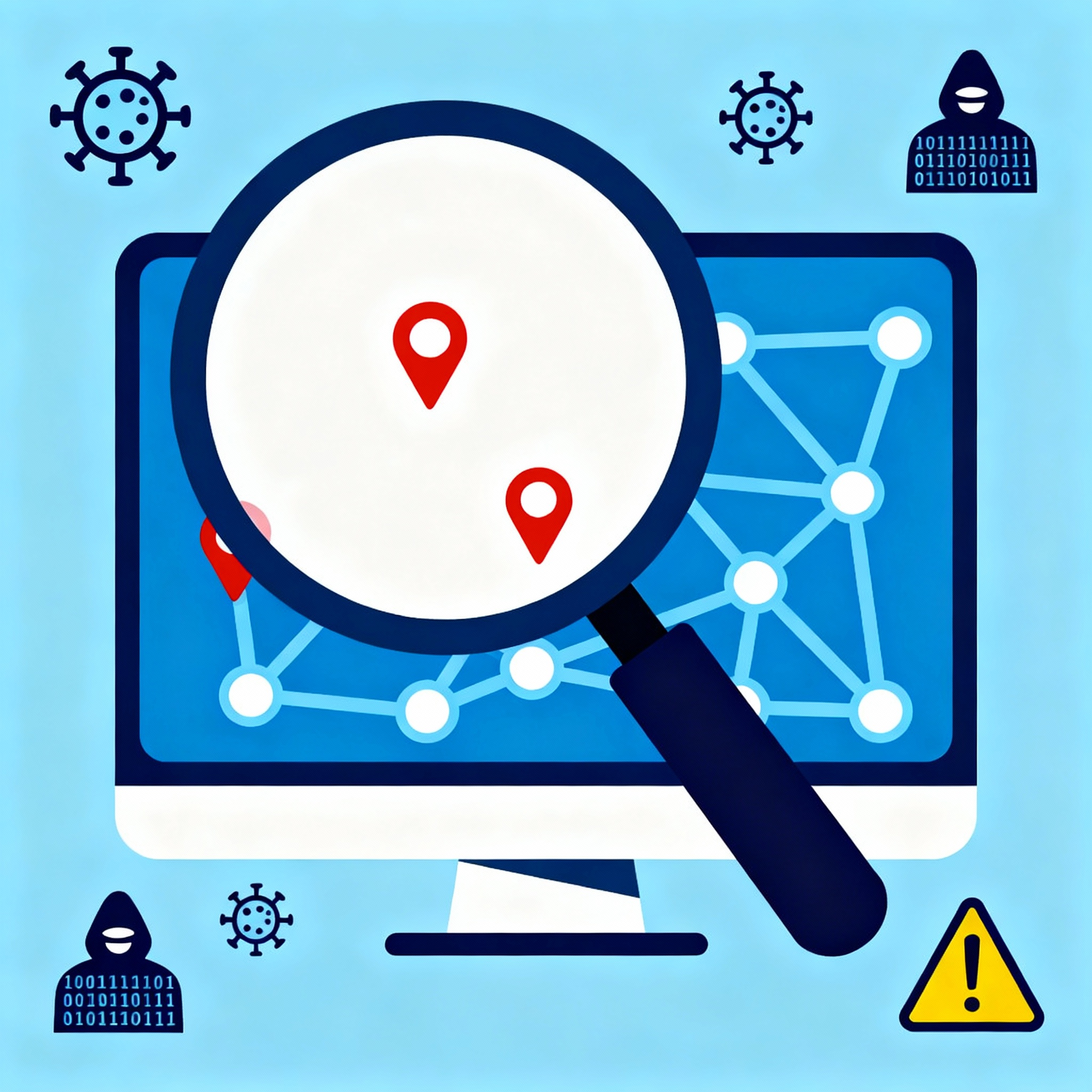Summary
- A cyber security consultant protects organizations from data breaches, cyberattacks, and digital threats.
- Their role involves assessing risks, designing security frameworks, implementing solutions, and training teams to prevent attacks.
- The cyber security consultant job description includes conducting vulnerability assessments, ensuring compliance, and monitoring threats.
- They require both technical skills (like ethical hacking, network security, and encryption) and soft skills (like communication and problem-solving).
- Understanding what cybersecurity consulting means can help businesses safeguard critical assets and maintain data integrity.
Cyber threats are evolving faster than ever. With hackers using sophisticated methods like ransomware, phishing, and social engineering, businesses face immense pressure to safeguard their digital assets. This is where cyber security consultants step in.
They serve as defenders, strategists, and advisors—helping organizations identify vulnerabilities, prevent cyberattacks, and maintain compliance with global security standards. But what is a cyber security consultant, and what exactly do they do?
In this detailed guide, we’ll break down the cyber security consultant job description, their key responsibilities, roles, required skills, and the immense value they bring to businesses in today’s digital-first world.
What Is a Cyber Security Consultant?

A cyber security consultant (also known as a cybersecurity advisor or security analyst) is a professional who protects organizations from potential cyber threats. They assess, design, and implement strategies that defend systems, networks, and data from unauthorized access or malicious attacks.
Put simply, what does a cybersecurity consultant do?
They evaluate a company’s IT infrastructure, identify weak points, and provide effective solutions to strengthen overall security. These consultants can work in-house for large organizations or as independent professionals offering cybersecurity consulting services to multiple clients.
In essence, what is cybersecurity consulting is the process of helping businesses identify, analyze, and mitigate risks related to digital security — ensuring that sensitive information remains safe from internal or external attacks.
Why Do Businesses Need Cyber Security Consultants?
The importance of cybersecurity consultants has skyrocketed in recent years due to several factors:
- Rising Cybercrime – With global cybercrime costs expected to exceed trillions annually, every business is a potential target.
- Compliance and Regulations – Data protection laws like GDPR and HIPAA require organizations to maintain strict security standards.
- Reputation Management – A single breach can permanently damage a company’s image and erode customer trust.
- Complex IT Environments – As organizations adopt cloud computing and remote work, the attack surface grows—demanding specialized cybersecurity strategies.
Hence, companies rely on cybersecurity consulting services to stay secure, compliant, and resilient.
Key Roles of a Cyber Security Consultant

A cybersecurity consultant performs multiple roles that combine technical expertise and strategic insight. Let’s break down the primary functions of this role.
1. Assessing Security Posture
The first step in the cyber security consultant job description involves assessing an organization’s current security setup. Consultants evaluate systems, software, and data management practices to identify vulnerabilities and potential risks.
They perform penetration testing and risk analysis to simulate attacks, helping organizations understand their weaknesses before hackers do.
2. Designing Security Architecture
After identifying vulnerabilities, cybersecurity consultants design robust security architectures tailored to the organization’s needs.
This includes developing multi-layered defense systems such as firewalls, intrusion detection tools, access control mechanisms, and secure authentication processes. The goal is to create a strong, sustainable security framework that can evolve with technological changes.
3. Implementing Security Solutions
Once the design phase is complete, consultants work closely with IT teams to implement these solutions.
They may install and configure firewalls, antivirus programs, and encryption systems. Additionally, they establish procedures for data handling, secure file transfers, and safe online communication—ensuring that all technological layers are well-protected.
4. Monitoring and Threat Response
Cyber threats are dynamic. Hence, a key part of the cybersecurity consultant job description is ongoing monitoring and incident response.
Consultants monitor systems for suspicious activity using tools like SIEM (Security Information and Event Management) platforms. If a breach occurs, they quickly investigate, mitigate damage, and implement measures to prevent future incidents.
5. Employee Training and Awareness
Human error remains one of the biggest causes of cyberattacks. Therefore, cybersecurity consultants conduct training sessions to educate employees about phishing scams, password safety, and best practices for online behavior.
By building a culture of security awareness, consultants ensure that staff become the first line of defense rather than a weak link.
6. Compliance and Risk Management
Regulatory compliance is a critical part of modern business operations. Cybersecurity consultants help organizations adhere to laws and standards such as GDPR, ISO 27001, and NIST frameworks.
They also prepare risk management reports and security documentation that support audits and certifications.
7. Advisory and Reporting
Consultants serve as trusted advisors to senior management. They present detailed reports on system vulnerabilities, incidents, and recommendations. Their advice helps businesses make informed decisions about technology investments, ensuring cybersecurity aligns with long-term goals.
Also Read: What Do IT Consulting Services Include?
Key Responsibilities of a Cyber Security Consultant
A deeper look at the cyber security consultant job description reveals these key responsibilities:
- Conduct security audits and penetration testing.
- Identify system vulnerabilities and recommend corrective actions.
- Develop and implement data protection policies.
- Configure firewalls, antivirus, and access control systems.
- Monitor networks for suspicious behavior and respond to incidents.
- Ensure compliance with data protection laws and industry standards.
- Create reports and documentation for stakeholders.
- Train employees and support teams on security awareness.
In short, their mission is to protect, detect, and respond — ensuring that the digital environment remains safe and resilient.
Essential Skills Required for Cyber Security Consultants
To succeed in cybersecurity consulting, one must master both technical and soft skills.
A. Technical Skills
- Ethical Hacking & Penetration Testing – To identify weaknesses before cybercriminals exploit them.
- Network Security & Protocols – Understanding TCP/IP, VPNs, and firewalls.
- Programming Knowledge – Familiarity with languages like Python, Java, and C++ for threat analysis.
- Encryption Techniques – Implementing secure communication and data storage.
- SIEM Tools & Security Software – Hands-on experience with monitoring tools like Splunk, Wireshark, and Metasploit.
B. Soft Skills
- Communication Skills – Explaining technical risks to non-technical teams in clear language.
- Problem-Solving Ability – Quickly analyzing and mitigating potential threats.
- Leadership & Teamwork – Coordinating with IT, legal, and management teams.
- Attention to Detail – Detecting subtle indicators of compromise.
- Project Management – Overseeing the implementation of complex security systems.
Tools and Technologies Used
Cybersecurity consultants rely on an array of tools, including:
- Firewalls and IDS/IPS systems (e.g., Fortinet, Cisco ASA).
- Vulnerability scanners (Nessus, Qualys).
- SIEM systems (Splunk, IBM QRadar).
- Endpoint protection tools (CrowdStrike, Sophos).
- Encryption software (VeraCrypt, BitLocker).
How Cyber Security Consultants Enhance Organisational Security
Cybersecurity consultants don’t just defend against attacks—they proactively strengthen organizational resilience.
By identifying and addressing vulnerabilities, they prevent data breaches and financial losses. They also play a key role in incident response, helping organizations recover quickly after an attack. Furthermore, they build cybersecurity awareness among employees, creating a culture where everyone takes digital security seriously.
Through continuous improvement and policy development, consultants help businesses maintain strong defences that evolve alongside emerging threats.
Career Path and Qualifications
To enter the cybersecurity consulting field, one typically needs:
- A bachelor’s degree in computer science, IT, or cybersecurity.
- Certifications such as:
- CEH (Certified Ethical Hacker)
- CISSP (Certified Information Systems Security Professional)
- CompTIA Security+
- CISM (Certified Information Security Manager)
- Hands-on experience with IT systems, networks, and security tools.
The average salary for cybersecurity consultants varies globally but typically ranges from $80,000 to $150,000 annually, depending on experience, certifications, and location.
Challenges Faced by Cyber Security Consultants
Despite their expertise, cybersecurity consultants face several challenges:
- Rapidly evolving threats requiring constant upskilling.
- Limited budgets and resources within organizations.
- Balancing security enforcement with user convenience.
- Complex compliance frameworks across industries.
Adaptability and continuous learning are crucial to staying effective in this fast-paced field.
Conclusion
So, what does a cybersecurity consultant do?
In simple terms—they safeguard the digital world. From assessing risks and implementing defences to training employees and ensuring compliance, cybersecurity consultants are the guardians of modern enterprises.
Their work not only prevents costly breaches but also builds trust and confidence among clients, customers, and stakeholders. As cyber threats continue to evolve, the demand for skilled professionals in cybersecurity consulting will only grow.
If you’re passionate about technology, risk management, and problem-solving, becoming a cyber security consultant could be one of the most rewarding career paths in the digital age.
FAQs
What is a cyber security consultant?
A cyber security consultant is a professional responsible for assessing and improving an organization’s cybersecurity infrastructure to protect it from data breaches and cyberattacks.
What does a cybersecurity consultant do?
They identify risks, implement security solutions, and monitor systems to defend against cyber threats while ensuring compliance with regulations.
What is cybersecurity consulting?
Cybersecurity consulting involves advising organizations on strategies and technologies to safeguard digital assets and minimize cyber risks.
What qualifications are needed to become a cybersecurity consultant?
Typically, a degree in computer science or IT, relevant experience, and certifications like CEH, CISSP, or CISM are required.
What is included in a cybersecurity consultant job description?
It includes conducting security audits, designing architecture, managing incident response, training staff, and maintaining compliance standards.
What is the average salary of a cybersecurity consultant?
Depending on location and experience, the average salary ranges from £50,000 in the UK to $120,000 or more in the U.S.

